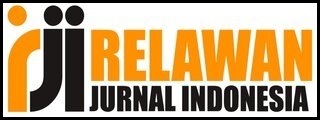ANTECEDENTS OF ENTREPRENEURIAL DECISION-MAKING EFFECTIVENESS: A COGNITIVE PERSPECTIVE
Keywords:
efektivitas pengambilan keputusan, tugas kewirausahaan, sistem pemrosesan informasi kognitifAbstract
Pengusaha menyesuaikan penggunaan sistem kognitif mereka agar sesuai dengan karakteristik tugas keputusan yang mereka hadapi untuk meningkatkan efektivitas pengambilan keputusan. Namun, literatur tidak memiliki bukti mengenai peran kemampuan untuk mencocokkan sistem kognitif dengan pengambilan keputusan dalam hubungan antara karakteristik tugas keputusan kewirausahaan dan efektivitas pengambilan keputusan. Penelitian ini berpendapat bahwa penggunaan sistem kognitif tertentu dipengaruhi oleh efek dari karakteristik tugas keputusan dan dimoderasi oleh kehadiran kemampuan untuk mencocokkan sistem kognitif dengan pengambilan keputusan. Dalam penelitian ini, teoriteori tentang efektivitas pengambilan keputusan, karakteristik tugas keputusan, dan kemampuan mencocokkan sistem kognitif dengan pengambil keputusan ditinjau dan diintegrasikan. Kemudian, sebuah proposisi dan model teoritis yang komprehensif dikembangkan. Kontribusi teoritis utama dari model ini juga dibahas.References
Allinson, C. W., Chell, E., & Hayes, J. (2000). Intuition and entrepreneurial behaviour. European Journal of Work and Organizational Psychology, 9(1), 31-43.
Artinger, F., Petersen, M., Gigerenzer, G., & Weibler, J. (2015). Heuristics as adaptive decision strategies in management. Journal of Organizational Behavior, 36(1), 33-52.
Baum, J. R., & Wally, S. (2003). Strategic decision speed and firm performance. Strategic Management Journal, 24(11), 1107-1129.
Barnard, C. (1938). The functions of the executive (Vol. 11). Cambrige, MA: Harvard University Press.
Baron, R.A. (2008). The role of affect in the entrepreneurial process. Academy of Management Review, 33(2), 328-340.
Blume, B. D., & Covin, J. G. (2011). Attributions to intuition in the venture founding process: Do entrepreneurs actually use intuition or just say that they do? Journal of Business Venturing, 26(1), 137-151.
Busenitz, L. W., & Barney, J. B. (1997). Differences between entrepreneurs and managers in large organizations: Biases and heuristics in strategic decision-making. Journal of Business Venturing, 12(1), 9-30.
Chu, P. C., & Spires, E. E. (2001). Does time constraint on users negate the efficacy of decision support systems? Organizational Behavior and Human Decision Processes, 85(2), 229-249.
Dane, E., Rockmann, K. W., & Pratt, M. G. (2012). When should I trust my gut? Linking domain expertise to intuitive decision-making effectiveness. Organizational Behavior and Human Decision Processes, 119(2), 187-194.
Dess, G. G., & Beard, D. (1984). Dimensions of organizational task environments. Administrative Science Quarterly, 29(1), 52-73.
Epstein, S., Pacini, R., DenesRaj, V., & Heier, H. (1996). Individual differences in intuitiveexperiential and analytical-rational thinking styles. Journal of Personality and Social Psychology, 71(2), 390-405.
Gibcus, P., Vermeulen, P. A. M., and Radulova, E. (2008), The decision-making entrepreneur: A literature review, in Cur?eu, P.L. and Vermeulen P.A.M. (Ed.), Entrepreneurial Strategic Decision?making: A Cognitive Perspective, Edward Elgar, Northampton, MA, 11-40.
Groves, K., Vance, C. and Choi, D. (2011). Examining entrepreneurial cognition: an occupational analysis of balanced linear and nonlinear thinking and entrepreneurship success”, Journal of Small Business Management, 49(3), 438-466.
Gustafsson, V. (2006). Entrepreneurial decision-making: Individuals, tasks and cognitions. Cheltenham: Edward Elgar.
Hammond, K. R., Hamm, R. M., Grassia, J., & Pearson, T. (1987). Direct comparison of the efficacy of intuitive and analytical cognition in expert judgment. IEEE Transactions on Systems, Man, & Cybernetics, 17(5), 753-770.
Hough, J. R., & White, M. A. (2003). Environmental dynamism and strategic decisionmaking rationality: An examination at the decision level. Strategic Management Journal, 24(5), 481-489.
Kahneman, D. (2011). Thinking, fast and slow: Macmillan. Kickul, J., Gundry, L.K., Barbosa, S.D. and Whitcanack, L. (2009). Intuition versus analysis? Testing differential models of cognitive style on entrepreneurial self–efficacy and the new venture creation process. Entrepreneurship Theory and Practice, 33(2), 439-453.
Lipshitz, R., & Strauss, O. (1997). Coping with uncertainty: A naturalistic decision-making analysis. Organizational Behavior and Human Decision Processes, 69(2), 149-163.
Mullins, J. W., & Forlani, D. (2005). Missing the boat or sinking the boat: A study of new venture decision making. Journal of Business Venturing, 20(1), 47-69.
Myers, I. B. (1962). The Myers-Briggs Type Indicator: Manual. Princeton, NJ: Educational Testing Services.
Novak, T.P. and Hoffman, D.L. (2008). The fit of thinking style and situation: new measures of situation-specific experiential and rational cognition. Journal of Consumer Research, 36(1), 56-72.
Palich, L. E., & Bagby, D. R. (1995). Using cognitive theory to explain entrepreneurial risktaking: Challenging conventional wisdom. Journal of Business Venturing, 10(6), 425-438.
Sadler-Smith, E. (2004), Cognitive style and the management of small and medium-sized enterprises. Organization Studies, 25(2), 155-181.
Sadler?Smith, E. (2012). Entrepreneurial cognition, entrepreneurial orientation and firm capability in the creative industries. British Journal of Management, 23(3), 415-432.
Shepherd, D.A., Williams, T.A. and Patzelt, H. (2015). Thinking about entrepreneurial decision making: review and research agenda. Journal of Management, 41(1), 11-46.
Van Riel, A., Ouwersloot, H., & Lemmink, J. (2003). Antecedents of effective decision making: A cognitive approach. METEOR, Maastricht research school of Economics of TEchnology and ORganizations, 1-41.
Vermeulen, P.A.M. and Curseu, P.L. (2010). Entrepreneurial strategic decision-making: A cognitive perspective, Edward Elgar, Northampton, MA
Downloads
Published
How to Cite
Issue
Section
License
Copyright (c) 2021 Jurnal Orientasi Bisnis dan Entrepreneurship (JOBS)

This work is licensed under a Creative Commons Attribution-ShareAlike 4.0 International License.

This work is licensed under a CC Attribution-ShareAlike 4.0

 Ariel Nian Gani
Ariel Nian Gani
 Fakultas Ekonomi dan Bisnis, Universitas YARSI
Fakultas Ekonomi dan Bisnis, Universitas YARSI








